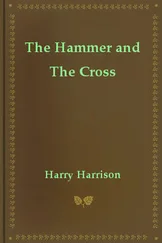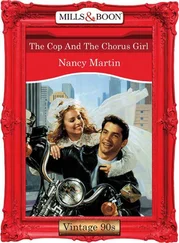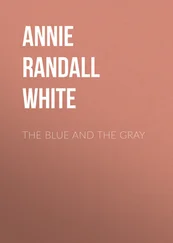Gilbert Chesterton - The Ball and the Cross
Здесь есть возможность читать онлайн «Gilbert Chesterton - The Ball and the Cross» весь текст электронной книги совершенно бесплатно (целиком полную версию без сокращений). В некоторых случаях можно слушать аудио, скачать через торрент в формате fb2 и присутствует краткое содержание. Жанр: Классическая проза, на английском языке. Описание произведения, (предисловие) а так же отзывы посетителей доступны на портале библиотеки ЛибКат.
- Название:The Ball and the Cross
- Автор:
- Жанр:
- Год:неизвестен
- ISBN:нет данных
- Рейтинг книги:5 / 5. Голосов: 1
-
Избранное:Добавить в избранное
- Отзывы:
-
Ваша оценка:
- 100
- 1
- 2
- 3
- 4
- 5
The Ball and the Cross: краткое содержание, описание и аннотация
Предлагаем к чтению аннотацию, описание, краткое содержание или предисловие (зависит от того, что написал сам автор книги «The Ball and the Cross»). Если вы не нашли необходимую информацию о книге — напишите в комментариях, мы постараемся отыскать её.
The Ball and the Cross — читать онлайн бесплатно полную книгу (весь текст) целиком
Ниже представлен текст книги, разбитый по страницам. Система сохранения места последней прочитанной страницы, позволяет с удобством читать онлайн бесплатно книгу «The Ball and the Cross», без необходимости каждый раз заново искать на чём Вы остановились. Поставьте закладку, и сможете в любой момент перейти на страницу, на которой закончили чтение.
Интервал:
Закладка:
“You refuse me my half-bottle of Medoc, the drink the most wholesome and the most customary. You refuse me the company and obedience of my daughter, which Nature herself indicates. You refuse me the beef and mutton, without pretence that it is a fast of the Church. You now forbid me the promenade, a thing necessary to a person of my age. It is useless to tell me that you do all this by law. Law rests upon the social contract. If the citizen finds himself despoiled of such pleasures and powers as he would have had even in the savage state, the social contract is annulled.”
“It’s no good chattering away, Monsieur,” said Hutton, for the Master was silent. “The place is covered with machine-guns. We’ve got to obey our orders, and so have you.”
“The machinery is of the most perfect,” assented Durand, somewhat irrelevantly; “worked by petroleum, I believe. I only ask you to admit that if such things fall below the comfort of barbarism, the social contract is annulled. It is a pretty little point of theory.”
“Oh! I dare say,” said Hutton.
Durand bowed quite civilly and withdrew.
“A cosy party,” resumed the Master, scornfully, “and yet I believe some of you are in doubt about how we all came together. I will explain it, ladies and gentlemen; I will explain everything. To whom shall I specially address myself? To Mr. James Turnbull. He has a scientific mind.”
Turnbull seemed to choke with sudden protest. The Master seemed only to cough out of pure politeness and proceeded: “Mr. Turnbull will agree with me,” he said, “when I say that we long felt in scientific circles that great harm was done by such a legend as that of the Crucifixion.”
Turnbull growled something which was presumably assent.
The Master went on smoothly: “It was in vain for us to urge that the incident was irrelevant; that there were many such fanatics, many such executions. We were forced to take the thing thoroughly in hand, to investigate it in the spirit of scientific history, and with the assistance of Mr. Turnbull and others we were happy in being able to announce that this alleged Crucifixion never occurred at all.”
MacIan lifted his head and looked at the Master steadily, but Turnbull did not look up.
“This, we found, was the only way with all superstitions,” continued the speaker; “it was necessary to deny them historically, and we have done it with great success in the case of miracles and such things. Now within our own time there arose an unfortunate fuss which threatened (as Mr. Turnbull would say) to galvanize the corpse of Christianity into a fictitious life–the alleged case of a Highland eccentric who wanted to fight for the Virgin.”
MacIan, quite white, made a step forward, but the speaker did not alter his easy attitude or his flow of words. “Again we urged that this duel was not to be admired, that it was a mere brawl, but the people were ignorant and romantic. There were signs of treating this alleged Highlander and his alleged opponent as heroes. We tried all other means of arresting this reactionary hero worship. Working men who betted on the duel were imprisoned for gambling. Working men who drank the health of a duellist were imprisoned for drunkenness. But the popular excitement about the alleged duel continued, and we had to fall back on our old historical method. We investigated, on scientific principles, the story of MacIan’s challenge, and we are happy to be able to inform you that the whole story of the attempted duel is a fable. There never was any challenge. There never was any man named MacIan. It is a melodramatic myth, like Calvary.”
Not a soul moved save Turnbull, who lifted his head; yet there was the sense of a silent explosion.
“The whole story of the MacIan challenge,” went on the Master, beaming at them all with a sinister benignity, “has been found to originate in the obsessions of a few pathological types, who are now all fortunately in our care. There is, for instance, a person here of the name of Gordon, formerly the keeper of a curiosity shop. He is a victim of the disease called Vinculomania– the impression that one has been bound or tied up. We have also a case of Fugacity (Mr. Whimpey), who imagines that he was chased by two men.”
The indignant faces of the Jew shopkeeper and the Magdalen Don started out of the crowd in their indignation, but the speaker continued:
“One poor woman we have with us,” he said, in a compassionate voice, “believes she was in a motor-car with two such men; this is the well-known illusion of speed on which I need not dwell. Another wretched woman has the simple egotistic mania that she has caused the duel. Madeleine Durand actually professes to have been the subject of the fight between MacIan and his enemy, a fight which, if it occurred at all, certainly began long before. But it never occurred at all. We have taken in hand every person who professed to have seen such a thing, and proved them all to be unbalanced. That is why they are here.”
The Master looked round the room, just showing his perfect teeth with the perfection of artistic cruelty, exalted for a moment in the enormous simplicity of his success, and then walked across the hall and vanished through an inner door. His two lieutenants, Quayle and Hutton, were left standing at the head of the great army of servants and keepers.
“I hope we shall have no more trouble,” said Dr. Quayle pleasantly enough, and addressing Turnbull, who was leaning heavily upon the back of a chair.
Still looking down, Turnbull lifted the chair an inch or two from the ground. Then he suddenly swung it above his head and sent it at the inquiring doctor with an awful crash which sent one of its wooden legs loose along the floor and crammed the doctor gasping into a corner. MacIan gave a great shout, snatched up the loose chair-leg, and, rushing on the other doctor, felled him with a blow. Twenty attendants rushed to capture the rebels; MacIan flung back three of them and Turnbull went over on top of one, when from behind them all came a shriek as of something quite fresh and frightful.
Two of the three passages leading out of the hall were choked with blue smoke. Another instant and the hall was full of the fog of it, and red sparks began to swarm like scarlet bees.
“The place is on fire!” cried Quayle with a scream of indecent terror. “Oh, who can have done it? How can it have happened?”
A light had come into Turnbull’s eyes. “How did the French Revolution happen?” he asked.
“Oh, how should I know!” wailed the other.
“Then I will tell you,” said Turnbull; “it happened because some people fancied that a French grocer was as respectable as he looked.”
Even as he spoke, as if by confirmation, old Mr. Durand re-entered the smoky room quite placidly, wiping the petroleum from his hands with a handkerchief. He had set fire to the building in accordance with the strict principles of the social contract.
But MacIan had taken a stride forward and stood there shaken and terrible. “Now,” he cried, panting, “now is the judgement of the world. The doctors will leave this place; the keepers will leave this place. They will leave us in charge of the machinery and the machine-guns at the windows. But we, the lunatics, will wait to be burned alive if only we may see them go.”
“How do you know we shall go?” asked Hutton, fiercely.
“You believe nothing,” said MacIan, simply, “and you are insupportably afraid of death.”
“So this is suicide,” sneered the doctor; “a somewhat doubtful sign of sanity.”
“Not at all–this is vengeance,” answered Turnbull, quite calmly; “a thing which is completely healthy.”
“You think the doctors will go,” said Hutton, savagely.
“The keepers have gone already,” said Turnbull.
Читать дальшеИнтервал:
Закладка:
Похожие книги на «The Ball and the Cross»
Представляем Вашему вниманию похожие книги на «The Ball and the Cross» списком для выбора. Мы отобрали схожую по названию и смыслу литературу в надежде предоставить читателям больше вариантов отыскать новые, интересные, ещё непрочитанные произведения.
Обсуждение, отзывы о книге «The Ball and the Cross» и просто собственные мнения читателей. Оставьте ваши комментарии, напишите, что Вы думаете о произведении, его смысле или главных героях. Укажите что конкретно понравилось, а что нет, и почему Вы так считаете.









